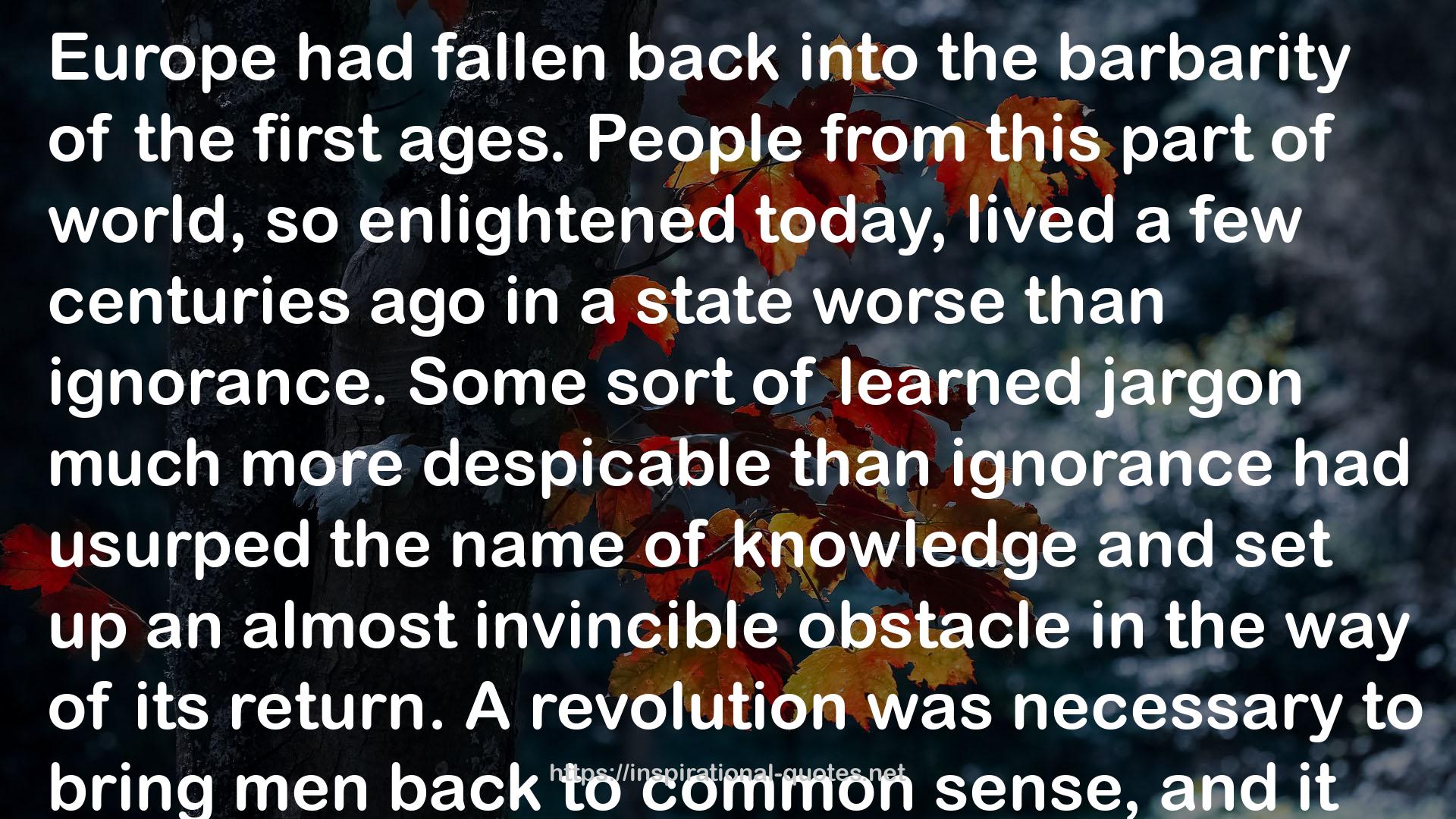Discourse on the Sciences and Arts and Polemics QUOTES
7 " Those whom nature destined to make her disciples have no need of teachers. Bacon, Descartes, Newton — these tutors of the human race had no need of tutors themselves, and what guides could have led them to those places where their vast genius carried them? Ordinary teachers could only have limited their understanding by confining it to their own narrow capabilities. With the first obstacles, they learned to exert themselves and made the effort to traverse the immense space they moved through. If it is necessary to permit some men to devote themselves to the study of the sciences and the arts, that should be only for those who feel in themselves the power to walk alone in those men's footsteps and to move beyond them. It is the task of this small number of people to raise monuments to the glory of the human mind. "
- Крехки небеса
- Poems by Emily Dickinson, Three Series, Complete
- Master Letters of Emily Dickinson
- Poems by Emily Dickinson, Series Two
- Poems by Emily Dickinson, Series One
- Morí por la belleza
- Love Poems: Classic Love Poetry In English
- Envelope Poems
- The Works of Emily Dickinson
- The Complete Works of Emily Dickinson

